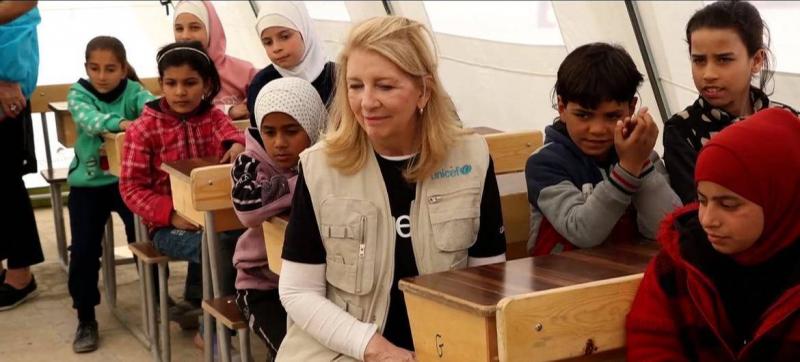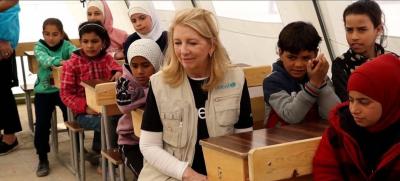The Syrian girl Janna lost her home, her school, many friends, and playgrounds after the earthquake on February 6, which changed her already unstable life. The destruction in her town forced her family to sleep outdoors for two days before finding shelter, like many families that lost loved ones and their homes. As difficult days pass after the intense earthquake, Janna's only dream is a "warm bed to embrace her." However, the risks that await her expose her to various diseases, according to UNICEF, which highlighted the need for $172.7 million to provide immediate life-saving support to 5.4 million people, including 2.6 million children, affected by the earthquake in Syria. UNICEF Executive Director Catherine Russell warned at the end of a two-day visit to Syria that 3.7 million children in areas affected by the earthquake face numerous escalating dangers which could be catastrophic following the violent tremors that struck northern Syria and southern Turkey on February 6.
She noted that ongoing disasters are exacerbating the increasing risk of infectious diseases spread through contact and water, and warned that the most vulnerable families are unable to access essential services due to 12 years of conflict. She continued, "Children in Syria have already suffered unspeakable terror and heartbreak. These earthquakes have not only destroyed more homes, schools, and playgrounds for children but have also shattered any sense of safety for many of the most vulnerable children and families."
Russell met with children in Aleppo in a temporary learning space where over 250 children living in a collective shelter can access education, mobile health services, recreation, and psychological first aid activities. In the Al-Mashareq mosque, Russell spoke with Israa, a mother of two, who said, "During the second earthquake that happened a week ago, my daughter was so scared and anxious that she fainted." UNICEF affirmed that ensuring continuous access to safe drinking water and sanitation is crucial in preventing the outbreak of diseases such as scabies, lice, cholera, and acute watery diarrhea, especially with many families displaced and living in difficult conditions in temporary shelters. They have managed to reach more than 400,000 affected people in northwestern Syria with either nutrition services or water, sanitation, and hygiene supplies and services.




